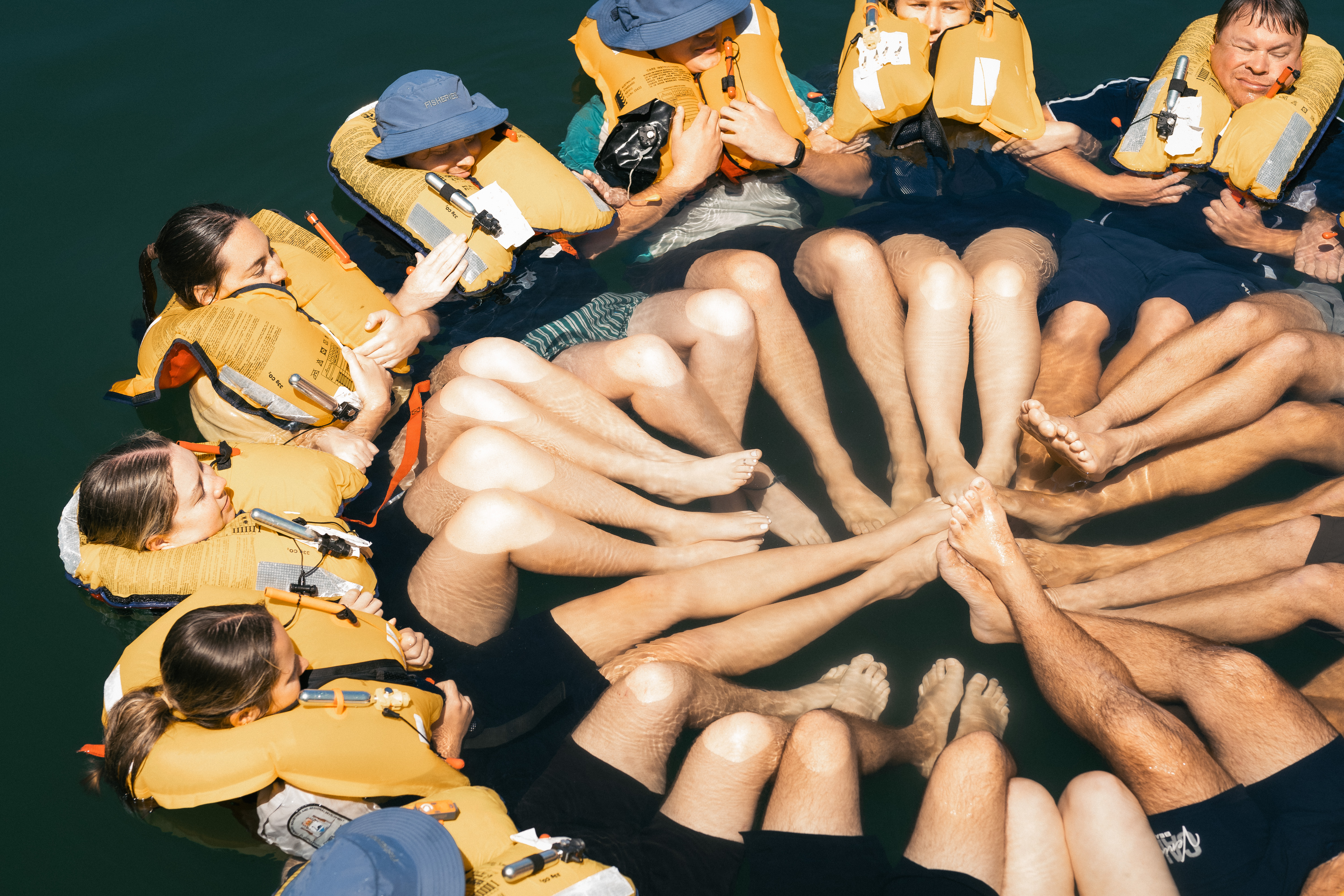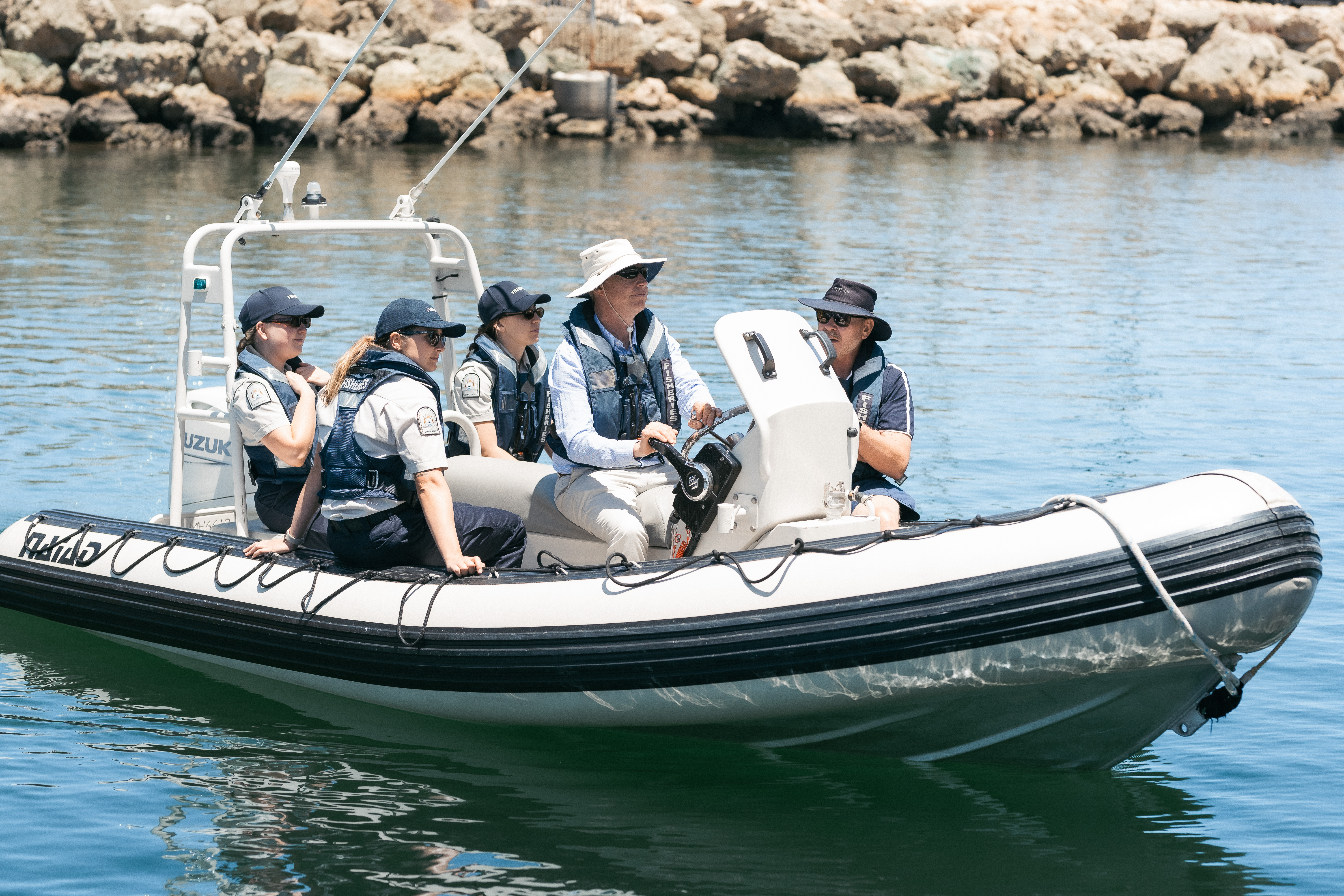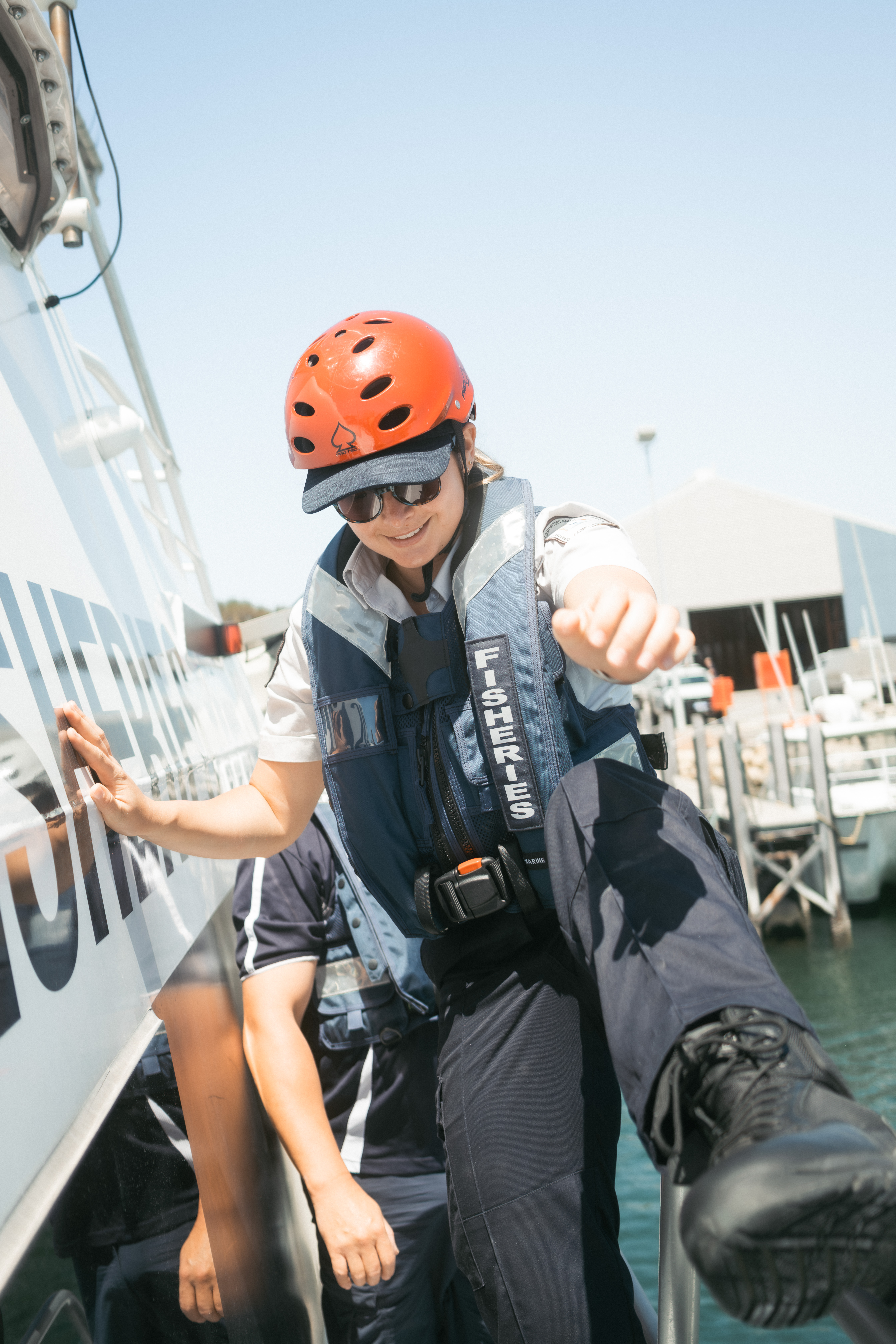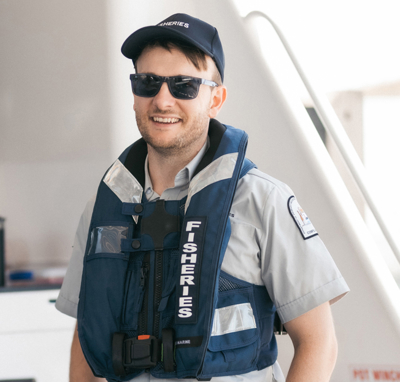
At the department, we’re looking for individuals who are passionate about conservation, community, and compliance. Fisheries and Marine Officers are out on the frontlines, helping to protect our oceans and waterways by enforcing laws, educating the public, and supporting sustainable practices.
With a strong sense of integrity, local knowledge, and a drive to make a difference, our officers play a vital role in preserving the future of our fisheries. If you value community, enjoy working outdoors, and have a deep respect for our natural resources, this could be the career for you.
Your career. Our coastline.
Apply nowYour responsibilities
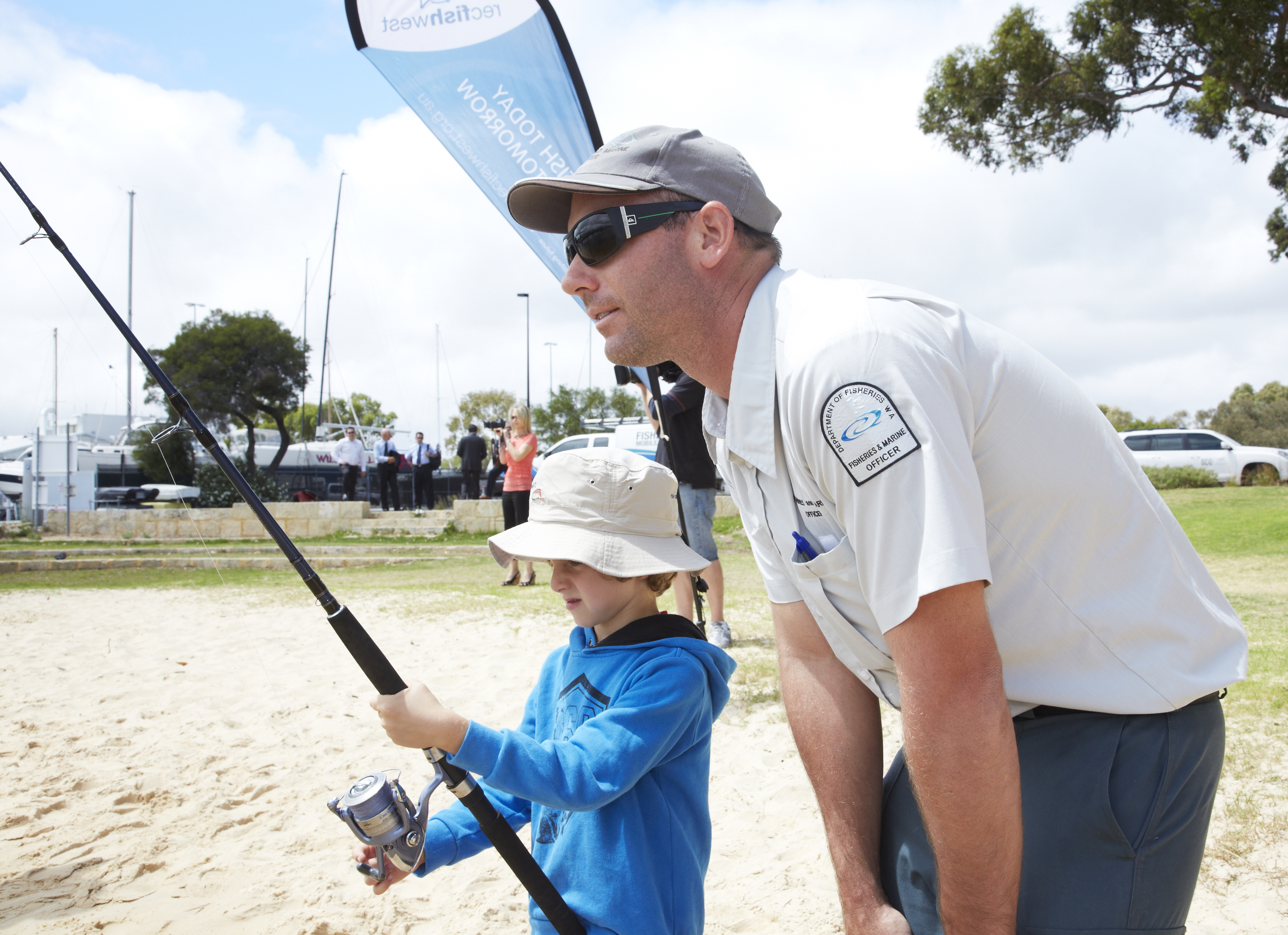
Inform fishers, divers, and schools about sustainable practices and ensure they understand relevant fishing regulations.
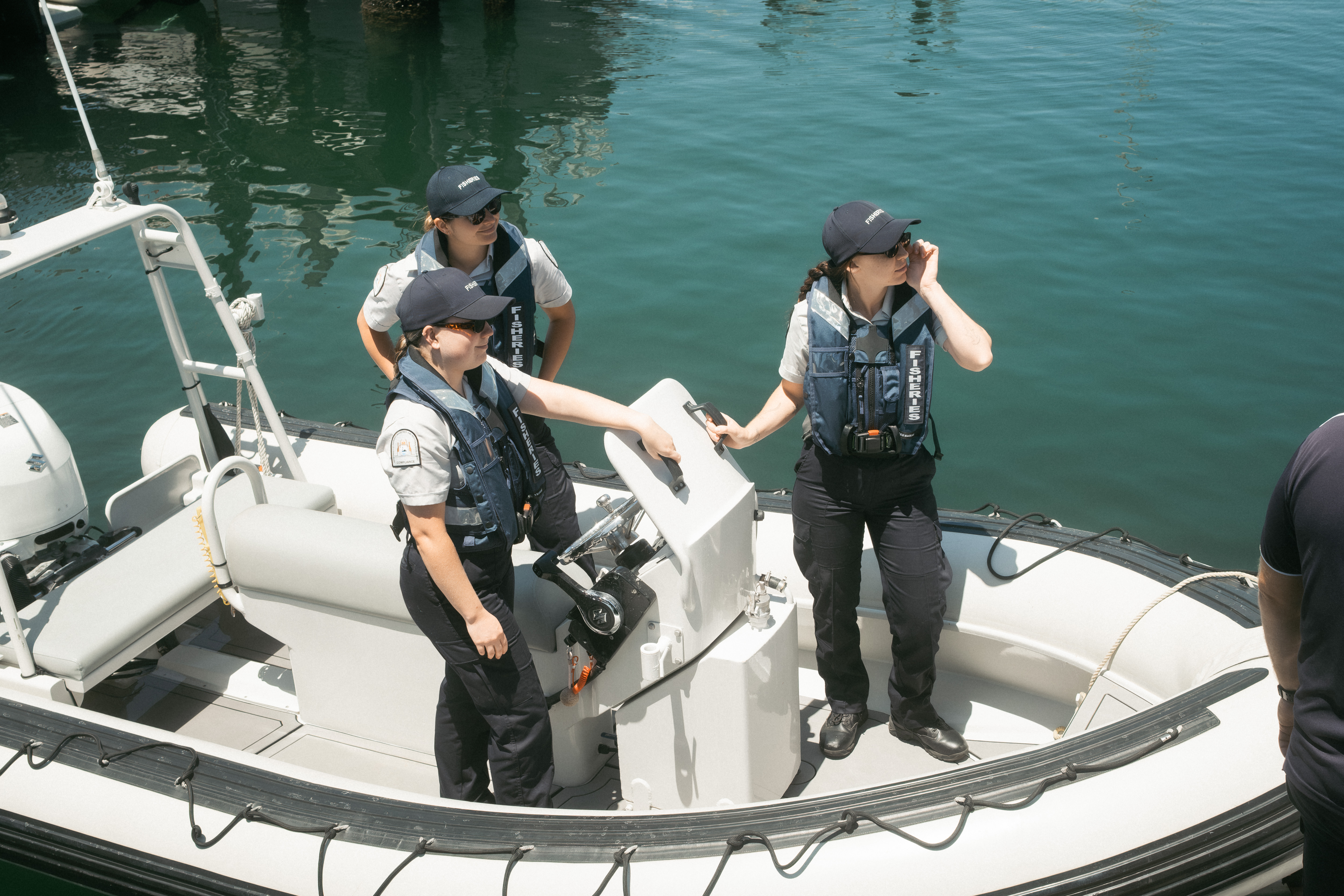
Use four-wheel drives and small vessels to access remote locations safely, from rugged coastlines to expansive open waters.
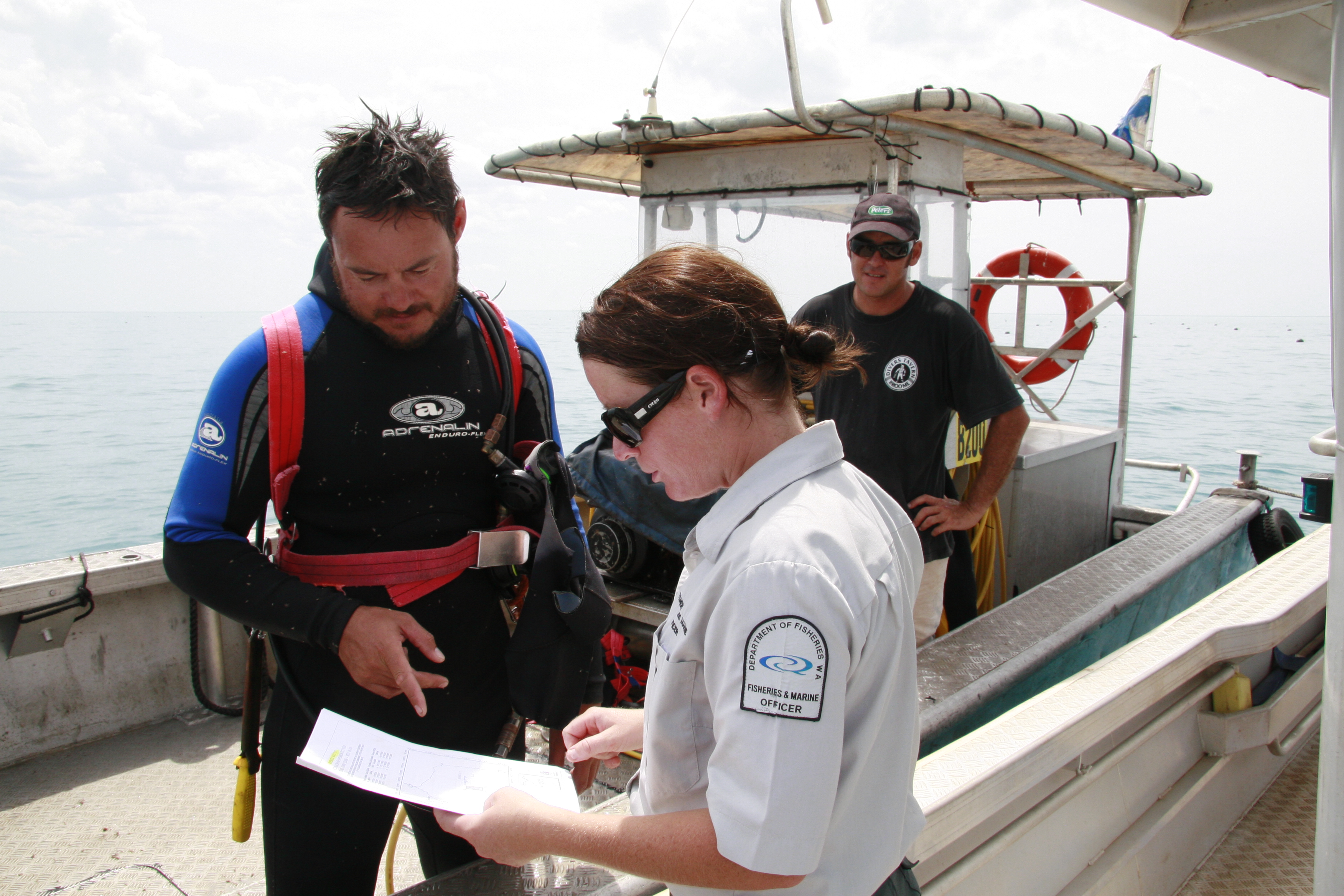
Boarding recreational and commercial vessels to observe and prevent illegal fishing across Western Australia's waters.
Your application, step by step
Am I eligible to apply?
You must be an Australian citizen or permanent resident for permanent roles, or have valid work rights for fixed-term or casual roles. A current National Police Certificate is required before starting, and additional background checks may apply for law enforcement suitability.
Essential requirements
To become a Fisheries and Marine Officer, you must meet several essential requirements. Original documents or certified copied will need to be provided to DPIRD at various stages of the recruitment process.
Before you can apply, you must meet these four criteria:
- Australian citizenship (birth certificate or current passport) or Permanent Residency for Australia as defined in the Migration Act 1958 or a Special Category Visa Holder (New Zealand citizen)
- Current A or C Class unrestricted driver’s licence
- A current CV (no longer than three pages) including details of two referees
- A cover letter of no more than three pages that clearly addresses each of the work-related requirements
Before starting the role, Fisheries and Marine Officers must meet certain pre-employment conditions, including holding a current National Police Clearance, meeting the entry-level fitness standards, and successfully completing a pre-employment medical assessment.
The recruitment process
The recruitment process takes about four months to complete, where applicants progress through various stages of assessment:
|
1. Applications are received online and once the ad closes, you’ll be sent an invite from VidCruiter®, where you’ll be required to submit video responses within one week of the closing date. |
|
2. Shortlisted applicants undergo online psychometric and cognitive ability assessments. |
|
3. Shortlisted applicants attend a structured interview. |
|
4. Shortlisted applicants undergo fitness and swim assessments. |
|
5. Shortlisted applicants participate in an assessment centre, which will include practical exercises, job simulations and role-plays. |
|
6. Reference checks are undertaken. |
|
7. Shortlisted applicants will be required to provide a current National Police Clearance (less than 6 months old) and attend a pre-employment medical assessment. |
|
8. A final list of recommended candidates is compiled, proposed, and endorsed. |
|
9. Applicants are advised whether they were successful for placement in the pool. |
| 10. Four-day period for unsuccessful applicants to lodge a claim for breach of the Employment Standard. |
|
11. Appointments made from the pool and training commences, subject to all pre-employment requirements being met. |
A role like no other
A career as a Fisheries and Marine Officer is dynamic, challenging, and deeply rewarding. It’s not your typical job and it’s important to carefully consider what the role involves before you apply.
You’ll be part of a frontline team protecting Western Australia’s valuable aquatic resources. Whether you're based at a metropolitan office or stationed in a regional community, you’ll be working in some of the most unique and remote areas of the state. This role comes with high expectations and in return, offers unmatched experiences, purpose-driven work, and the chance to make a real impact.
What to expect
- Metro and regional placements – You can apply to be posted anywhere in WA, including remote areas.
- Shift work – A rotating roster of ten days on (which can include nights), four days off.
- Physical duties – Boarding vessels at sea, hauling lobster pots, surveillance, and patrols.
- Diverse tasks – No two days are the same. You’ll move between education, compliance, investigation, and sea operations.
- Dynamic conditions – Work at night, in storms or heat, often far from home.
Pay and benefits
- Competitive salary with shift and sea-going allowances
- Extra leave for accrued hours
- Uniforms and equipment provided
- Ongoing training and career growth
Consider the commitment
This is a lifestyle as much as a job. The role can affect your family life, housing, and routines especially early in your career. In return, it offers purpose, career development, and the chance to be part of something bigger.
Location opportunities
As a Fisheries and Marine Officer, you’ll have the opportunity to be based in a variety of vibrant metropolitan and regional locations across Western Australia, from bustling coastal hubs to remote and rugged outposts.
Your career could take you to: Albany · Broome · Bunbury · Busselton · Carnarvon · Denham · Esperance · Exmouth · Fremantle · Geraldton · Hillarys · Jurien Bay · Karratha · Kununurra · Lancelin · Mandurah · Rockingham

Training and probation
As a Trainee Fisheries and Marine Officer, you’ll embark on a dynamic and hands-on 12-month development journey that begins with four months of structured training at our dedicated facility in South Fremantle. This is followed by six months of supervised, on-the-job experience where you’ll apply what you’ve learned in real-world compliance and community settings.
Your starting salary during training is at Level 2, with a salary range of $95,931 to $102,856 per annum. After successfully completing your 12-month TFMO program, you will be eligible to apply for reclassification to Level 3, which attracts a salary range of $107,814 to $115,742 per annum.
To progress to Level 3, you must:
-
Complete your training logbook
-
Demonstrate competency in key operational areas
-
Receive a satisfactory performance review
-
Show significant progress toward obtaining your Coxswain’s Certificate
Throughout your training, you will experience a diverse and rewarding program including:
-
Elements of Shipboard Safety, including safe water entry, use of flares, survival techniques such as the HELP position
-
Drone operations, for utilising drone technology for surveillance and patrolling
- Boarding Vessels at Sea, safety coming alongside moving and stationary vessels for the purpose of inspection
-
4WD training for effective land-based patrols across varied terrain
- Seamanship skills, including ropes and knots
-
Community education insight, learning how our officers collaborate with schools, industry and the public to promote responsible fishing and marine safety
- Mock apprehension and prosecution exercises, where you’ll conduct an apprehension, prepare a Prosecution Brief, and appear as a witness in a role-play courtroom, supported by our Legal and Licensing Services (LLS) team
This immersive training provides a strong foundation for a meaningful career in fisheries compliance and marine protection.
Promotion and career progression
Promotional opportunities arise regularly. As your career progresses, you may apply for roles such as:
-
Senior Fisheries and Marine Officer (Level 4)
-
Supervising Fisheries and Marine Officer (Level 5)
These senior positions offer salaries of up to $143,360 per annum. All promotional processes are merit-based, using the same fair and competitive selection principles applied during the trainee recruitment process.
By joining us, you’re not just starting a job, you’re building a career with purpose.

